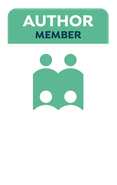Introduction:
If you love children and have a passion for writing, then you should consider writing children’s books! Not only is it an incredibly magical and rewarding experience, but it can also have a profound impact on the lives of young readers.
Children’s books can help instill important values and life lessons in young readers. They can also help boost children’s self-esteem and confidence, and perhaps most importantly, they can instill a belief in oneself – something that is so essential for kids (and adults!) to have.
If you have a story to tell, then there is no better audience than children. They are the most magical creatures on earth, and they deserve the most magical stories.
The Power of Children’s Books:
Children’s books have immense power. They can help shape a child’s future and make a lasting impression in their life. There is something special about the written word. It establishes connections between the reader and the story. It allows a reader to step into a world that the author has created. In children’s books, the story often takes precedence over the illustrations, unlike in older books which generally have the illustrations as the primary source of information.
Through children’s books, children learn about themselves and the values and beliefs of their culture. This is especially true for books written by the same culture. Children’s books often reflect the society that the author lives in, and the values and beliefs of that society. Children learn through stories, and by reading children’s books, they develop an understanding of the world and build connections to the people and culture around them.
Writing for a Young Audience:
Writing for a young audience is not just about telling stories—it’s about writing stories that inspire children to learn and grow. When crafting a story for a young audience, it is important to consider the age range of the audience. Writing for a younger audience allows us to connect with them through simple language and ideas. On the other hand, writing for an older audience gives us room to explore more complex topics that can be interesting and engaging. Both options have their unique benefits, so it’s up to you what kind of story you want to tell! It is also important to ensure that the characters and story lines are appropriate for the intended audience.
It is important to consider both the age and the level of understanding of the reader, as well as their interests. The language used should be appropriate for the reader, and the story line should be age appropriate and exciting for the reader. As a writer for a young audience, it is important to pay special attention to the language used and the story being told.
The Magic of Children’s Literature:
Children’s literature is a form of storytelling that has been around for centuries. It has undergone a lot of changes, but it remains one of the most cherished forms of storytelling. Children’s books bring to life stories and characters that children can relate to, and they often contain elements of fantasy and adventure. Children’s literature not only engages and entertains children, but it also teaches them life lessons and encourages them to think and feel more deeply. They learn to sympathize with the characters and identify with the themes while developing a better understanding of the world around them. Children’s literature has the unique ability to bring a story to life and make it real for children, inspiring them to live out their dreams and explore new possibilities.
Why You Should Write Children’s Books:
Writing children’s books is an incredibly fulfilling experience. When you write a book for children, you are providing them with an opportunity to escape into a world of their creation. You are allowing them to use their imagination and explore possibilities. Writing a children’s book also allows you to share your own stories and values with the world. You have a chance to give back to the world in a meaningful way. You can share your life lessons and experiences, and make a difference in the lives of young readers. Writing a children’s book also allows you to express your creativity. You can create characters and story lines that excite and engage young readers. You can use your imagination and makeup stories that inspire children to dream bigger and explore new possibilities.
Conclusion:
Writing a children’s book is a magical experience. It gives you the chance to make an impact on the lives of young readers and share your beliefs and values with the world. It allows you to express your creativity and tell your own stories. Writing children’s books is an amazing and rewarding experience that can have a lasting impact on the lives of young readers.


